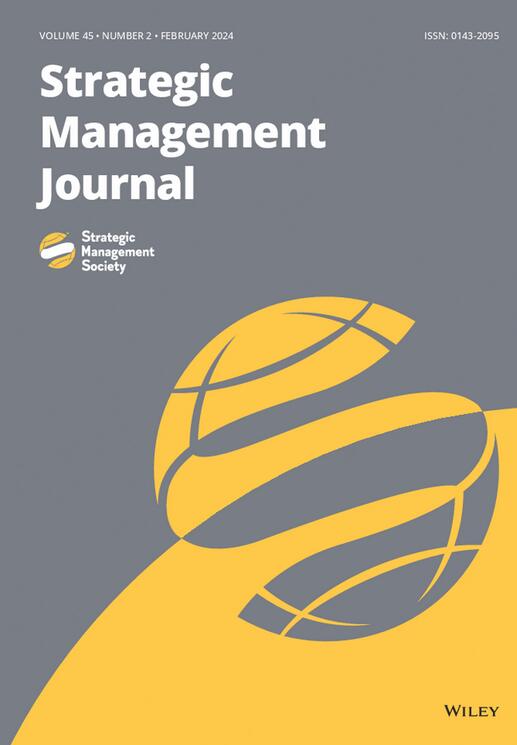我们编织的错综复杂的网络:检验CEO欺骗对分析师建议的影响
IF 7.2
1区 管理学
Q1 BUSINESS
引用次数: 0
摘要
摘要研究总结:当公司CEO的实质性欺诈行为被发现时,公司会受到分析师和投资者的惩罚。然而,很少有研究在ceo的欺骗行为被公开之前检验分析师对他们的反应。我们使用机器学习(ML)模型来操作CEO欺骗的可能性,以及分析师对CEO在财报电话会议上欺骗的怀疑。考虑到分析师对欺骗行为的怀疑,我们发现分析师倾向于向欺骗的ceo,尤其是那些被认为是全明星分析师的ceo提供更好的建议。我们发现,对于习惯性骗子来说,CEO欺骗的好处更低,这表明欺骗的回报在递减。本研究通过加深我们对分析师在公开披露任何欺诈或不当行为之前对CEO欺骗的反应的理解,有助于公司治理研究。ceo未被发现的欺骗行为可以通过影响分析师的建议来影响股市。使用先进的机器学习模型,我们的研究比以前的方法更准确地测量了欺骗的可能性,并确定了金融分析师倾向于倾向于欺骗的ceo,特别是高地位的分析师。然而,对于反复暴露于欺骗的分析师来说,欺骗的效果较差。这些发现强调了意识到CEO沟通中潜在欺骗行为的重要性,以及分析师持续审查、学习和适应的必要性。本文章由计算机程序翻译,如有差异,请以英文原文为准。
The tangled webs we weave: Examining the effects of CEO deception on analyst recommendations
Abstract Research Summary Organizations are punished by analysts and investors when material deceit by their CEO is uncovered. However, few studies examine analysts' responses to deceptive CEOs before their deceit is publicly known. We use machine learning (ML) models to operationalize the likelihood of CEO deception as well as analysts' suspicion of CEO deception on earnings calls. Controlling for analysts' suspicion of deception, we show that analysts are prone to assigning superior recommendations to deceptive CEOs, particularly those deemed as All‐Star analysts. We find that the benefits of CEO deception are lower for habitual deceivers, pointing to diminishing returns of deception. This study contributes to corporate governance research by enhancing our understanding of analysts' reactions to CEO deception prior to public exposure of any fraud or misconduct. Managerial Summary Undetected deception by CEOs can impact the stock market by influencing analysts' recommendations. Using an advanced ML model, our study measures the likelihood of deception more accurately than previous methods and identifies a tendency among financial analysts to favor deceptive CEOs, particularly high‐status analysts. However, deception is less effective with analysts who are repeatedly exposed to deception. These findings underscore the importance of awareness of potential deception in CEO communications and the need for continuous scrutiny, learning, and adaptability among analysts.
求助全文
通过发布文献求助,成功后即可免费获取论文全文。
去求助
来源期刊

Strategic Management Journal
Multiple-
CiteScore
13.70
自引率
8.40%
发文量
109
期刊介绍:
At the Strategic Management Journal, we are committed to publishing top-tier research that addresses key questions in the field of strategic management and captivates scholars in this area. Our publication welcomes manuscripts covering a wide range of topics, perspectives, and research methodologies. As a result, our editorial decisions truly embrace the diversity inherent in the field.
 求助内容:
求助内容: 应助结果提醒方式:
应助结果提醒方式:


